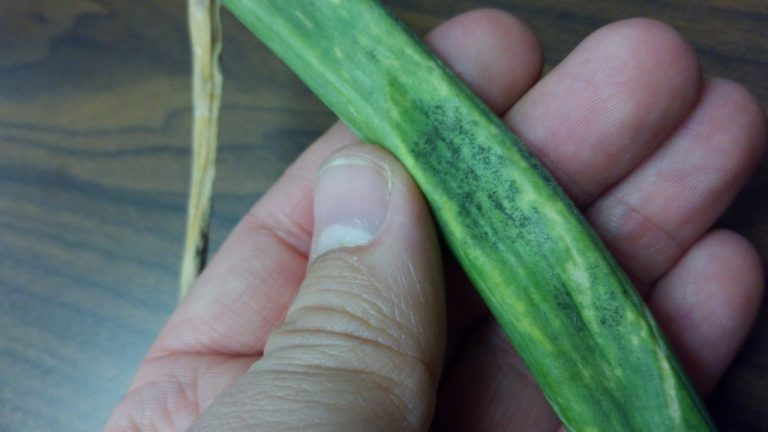By Clint Thompson
It is that time of year when Georgia’s Vidalia onion producers need to be monitoring their crop for downy mildew disease. It was not reported in any of the crop in 2021. But downy mildew is a concern every year for growers. It is mainly due to how quickly it spreads, says Chris Tyson, University of Georgia Extension Area Onion Agent at the Vidalia Onion & Vegetable Research Center in Lyons, Georgia.

“It progresses really quickly. It’s really weather dependent. If weather conditions are right, which would be foggy mornings or high humidity and a lot of free moisture in the air and in the plant canopy, it’s almost impossible to stop,” Tyson said. “It does spread fast.”
Previous Years
Early spring is normally when downy mildew is first observed. It was discovered on March 23 in 2020; on Feb. 28 in 2019; and on March 19 in 2018.
“Downy is a serious disease that we deal with. We don’t deal with it every year, but when we do it can be bad. We just want everybody to be on the lookout for it and to be using products in their spray program that will at least give them some protection from it,” Tyson said. “The best products that we have for it would be Omega 500 or Orondis Ultra. We also have a lot of protectant products like Bravo and even phosphites that can provide protection or a little bit of benefit. Downy’s just a bad disease. Even our best products can’t stop it completely. It can still be pretty bad.”
The disease’s first symptoms occur on older leaves as light green to pale yellow, which turn to tan and brown as the lesion ages. In Georgia, early symptoms can be diamond-shaped lesions that are mottled with pale and green areas interspersed. As colonization progresses, lesions may girdle the entire leaf. This could lead to total collapse of leaf tissues. Infected bulbs are reduced in size and typically don’t store well. In severe cases, 100% yield losses have been reported.









